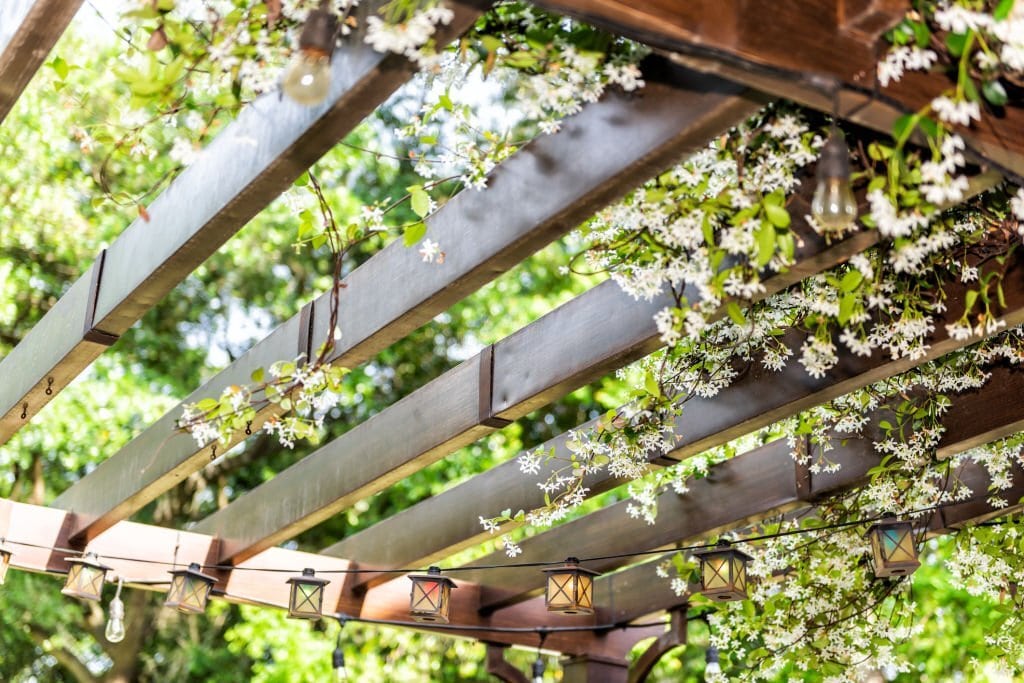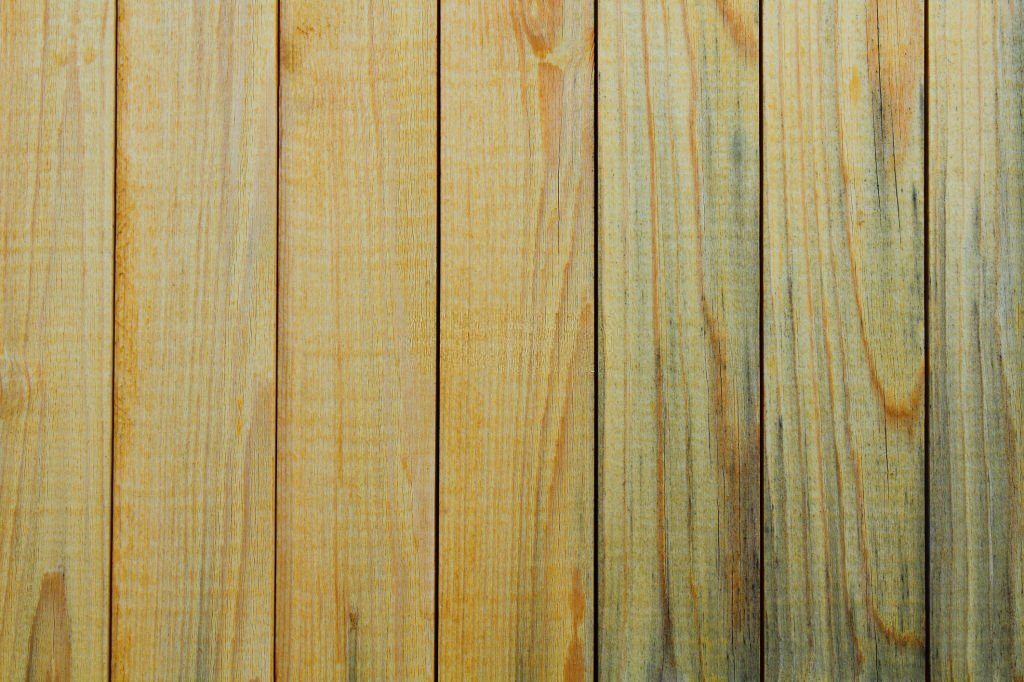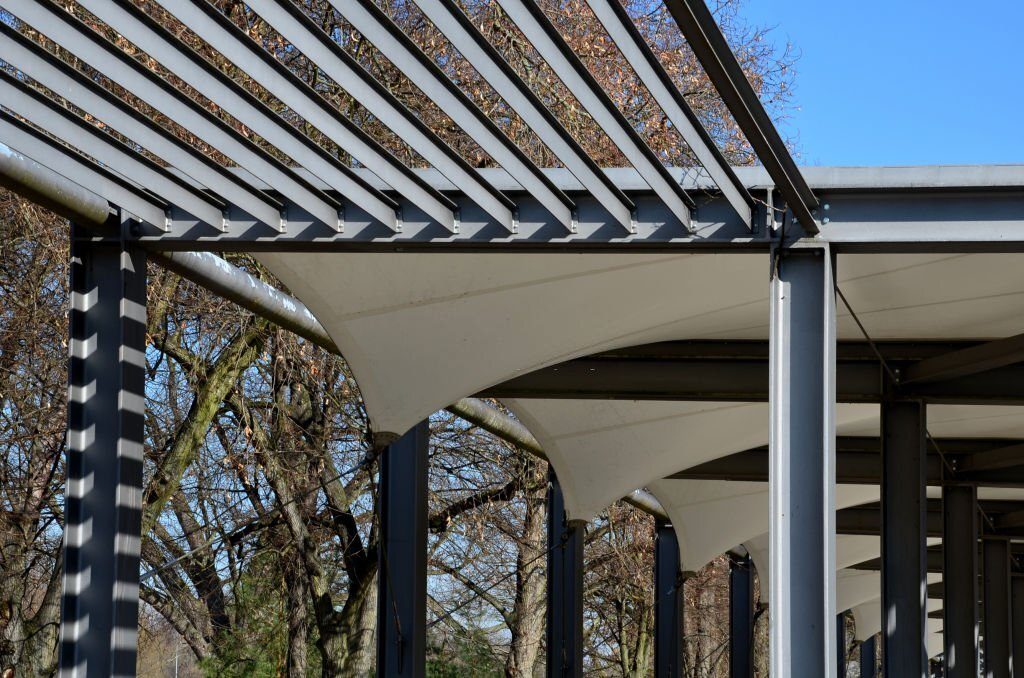
A Pergola is a stunning outdoor feature that can transform your backyard into a tranquil oasis, providing a space to relax, entertain, and unwind. Its structure consists of vertical posts or pillars supporting crossbeams or lattices, providing a partially shaded area perfect for enjoying the outdoors.
Apart from its aesthetic appeal, a pergola also offers several practical benefits, including protection from the sun and rain, improved ventilation, and increased privacy. However, selecting the suitable material for building a pergola is crucial in ensuring its longevity and durability.
In this article, we will delve into the top material trends for building a pergola in Sydney and guide you in selecting the best option for your outdoor space. So, let's get started!
Wood has been a popular choice of material for pergolas for centuries due to its natural beauty, durability, and versatility. It is a renewable resource that is widely available and easy to work with, making it a cost-effective option for homeowners.
Wood is also a timeless material that can complement any outdoor space, whether traditional or modern.
Regarding wood selection for pergolas, there are two main categories to consider: hardwood and softwood.
Hardwood comes from slow-growing deciduous trees with dense fibres, making them more rigid and durable than softwood. Some popular hardwood options for pergolas include teak, cedar, and redwood. Hardwood pergolas are known for their strength, stability, and resistance to decay and insects, making them an ideal choice for outdoor structures that require longevity.
On the other hand, softwood comes from evergreen trees, which are fast-growing and have a lower density than hardwood. Popular softwood options for pergolas include pine, spruce, and fir. Softwood pergolas are known for their affordability, lightweight, and ease of workability, making them a popular choice for DIY projects.
While hardwood and softwood have different characteristics, they both have their benefits and drawbacks. Hardwood is more expensive and harder to work with but is also more durable and long-lasting.
Softwood, on the other hand, is more affordable and easier to work with, but it may require more maintenance and may only last for a short time as hardwood.
Sydney's warm and sunny climate provides the perfect setting for enjoying the outdoors, and a pergola can be an excellent addition to any outdoor space. When selecting the suitable wood for your pergola in Sydney, there are several options to consider, each with its unique pros and cons.

Treated pine is a popular and affordable option for pergolas in Sydney. It is a softwood that is treated with chemicals to resist decay and insect damage.
The pros of using treated pine for pergolas include its affordability, availability, and ease of maintenance.
However, the cons include its susceptibility to warping and cracking over time and its less attractive appearance compared to hardwoods.
Merbau is a hardwood that is native to Southeast Asia and is a popular choice for pergolas in Sydney. It has a beautiful brown colour known for its strength and durability.
The pros of using Merbau for a pergola include its attractive appearance, durability, and resistance to decay and insects.
However, the cons include its higher cost than softwoods and its hardness, making it more challenging to work with.
Cedar is a softwood famous for its natural beauty and resistance to decay and insects. It is a beautiful reddish-brown and can be left untreated to develop a natural grey patina.
The pros of using cedar for a pergola include its attractive appearance, durability and resistance to decay and insects.
However, the cons include its higher cost compared to treated pine and its softness, making it more susceptible to damage.
Redwood is a popular choice for pergolas in Sydney. It has a beautiful reddish-brown colour and is known for its durability and resistance to decay and insects.
The pros of redwood for a pergola include its attractive appearance and durability. Redwood is a higher-cost material than softwoods and is more rigid, making it challenging to work with.

While wood has traditionally been the most common material for building pergolas, metal is becoming an increasingly popular alternative. In this article, we'll explore the benefits of using metal materials for pergolas in Sydney, including aluminium, steel and wrought iron.
Aluminum is a lightweight and durable metal resistant to rust and corrosion. It is also affordable compared to other metals, making it a popular pergola choice.
Aluminum is easy to work with, allowing for a variety of design options, and is available in a range of colours and finishes to suit any style. Additionally, aluminum pergolas require minimum maintenance, making them a practical choice for busy homeowners.
Steel is a solid and durable metal resistant to weathering, making it an ideal choice for outdoor structures like pergolas. It is available in various finishes, from sleek and modern to rustic and industrial.
Steel pergolas can be customized to fit any size or shape, and the material's strength allows for adding features like lighting and fans. While steel is more expensive than aluminum, it offers high durability and longevity.
Wrought Iron is a timeless and elegant material often used for decorative features in outdoor spaces, including pergolas. It is a solid and durable metal that can withstand harsh weather conditions and is available in a range of finishes to suit any style.
Wrought iron pergolas are known for their intricate and ornate designs, adding a touch of sophistication to any outdoor space.
However, wrought iron is one of the most expensive metals, and its weight can make it difficult to work with.
Pros:
Durability: Metals like aluminum, steel and wrought iron are strong and durable, making them long-lasting options for pergolas.
Low Maintenance: Metal pergolas require minimal maintenance compared to wood pergolas, which may need regular staining, sealing or painting.
Customizable: Metals can be easily shaped and moulded, making it possible to create intricate and ornate designs for pergolas.
Variety of Finishes: Metals are available in various finishes, from sleek and modern to rustic and industrial, making it easy to customize the look of a pergola.
Cons:
Cost: Metal pergolas can be more expensive than wood pergolas, especially when using materials like wrought iron.
Heat Absorption: Metals tend to absorb heat, which can make the pergola hot to the touch during hot weather.
Conductivity: Metals conduct electricity, which can be dangerous during electrical storms.
Limited Design Options: Compared to wood, metal may have some limitations in design options, especially for those who prefer a more natural or organic look.
Installation: Metal pergolas may require professional installation, which can add to the project's overall cost.
Vinyl has become an increasingly popular option for pergolas in Sydney due to its low maintenance and durability. Vinyl, or PVC (polyvinyl chloride), is a synthetic material resistant to weather, rot, and insect damage.
It is a popular choice for those who want a pergola that looks great without requiring a lot of maintenance. Here are some specific highlights, pros and cons of Vinyl as an option for pergolas in Sydney.
Pros:
Low Maintenance: Vinyl is an excellent option for those who want a pergola that requires minimum maintenance. Unlike wood, it does not need staining, painting, or sealing to maintain its appearance. It can be washed with soap and water to keep it looking new.
Durability: Vinyl is resistant to weathering, rot, and insect damage. It is not prone to cracking, warping, or splitting like wood, making it a long-lasting option for pergolas.
Customizable: Vinyl can be moulded and shaped to fit any design, making it a versatile pergola option. It is also available in a range of colours, so homeowners can choose the perfect colour to complement their outdoor space.
Cost-effective: While vinyl may be more expensive than some types of wood, it is a cost-effective option in the long run because it requires minimal maintenance and does not need to be replaced as often.
Eco-friendly: Vinyl is a recyclable material, making it an eco-friendly option for homeowners concerned about the environment.
Despite its many benefits, there are also some cons to consider when using vinyl for pergolas:
Cons:
Limited Design Options: Vinyl may have some design limitations compared to wood, especially for those who prefer a natural or organic look.
Heat Absorption: Like metal, vinyl tends to absorb heat, making it uncomfortable to the touch during hot weather.
Installation: Vinyl pergolas may require professional installation, which can add to the project's overall cost.
Non-Biodegradable: While vinyl is recyclable, it is not biodegradable and can take hundreds of years to decompose in landfills.
Susceptible to Fading: Vinyl may fade over time due to exposure to sunlight and other weather conditions, especially in darker colours.
Several types of vinyl pergolas are available in Sydney, each with unique features and benefits. Here are some of the most common types of vinyl pergolas.
These are the most basic types of the vinyl pergola, consisting of simple designs with standard post and beam configurations. They are available in various sizes and can be customized with multiple accessories like privacy walls and lattice panels.
Attached vinyl pergolas are built onto an existing structure like a house or a garage. They are an excellent option for homeowners who want to extend their outdoor living space while creating a seamless transition between the indoor and outdoor areas.
These are standalone pergolas that can be placed anywhere in the yard. They are available in a range of sizes and designs, from simple and minimalist to ornate and detailed.
Arched vinyl pergolas are characterized by their arched roofs, which give them a distinct look. They are available in various sizes and can be customized with multiple features like privacy walls and lattice panels.
Modern vinyl pergolas are designed with sleek and minimalist lines, making them a perfect choice for homeowners who prefer a contemporary look. They can be customized with various features like privacy walls and lighting.
Custom vinyl pergolas are designed to meet homeowners' specific needs and preferences. They can be customized with various features like privacy walls, lattice panels, and lighting, making them a perfect option for those who want a unique and personalized outdoor structure.
Fibreglass is a versatile material that has gained popularity for pergola construction in Sydney due to its unique features and benefits.
When it comes to building pergolas in Sydney, homeowners have several options to choose from, including wood, metal, vinyl, and fibreglass. Each material carries unique characteristics, making it essential to evaluate the pros and cons before making a decision.
Fibreglass is a relatively new material in the pergolas construction industry, but it has quickly gained popularity due to its exceptional features. This article explores the benefits of using fibreglass for pergolas in Sydney and weighs the pros and cons of this material.
Benefits of Using Fiberglass for Pergolas in Sydney
Durability: Fiberglass is a durable material that can withstand extreme weather conditions like high winds, hail, and heavy rain. It is also resistant to corrosion, rot and insect damage, making it a long-lasting material for pergolas.
Low maintenance: Fiberglass requires minimal maintenance compared to other materials like wood, which requires regular staining, sealing and painting. Fibreglass is also easy to clean and requires no social treatment to maintain its look.
Versatility: Fiberglass is a versatile material that can be moulded into different shapes and sizes, making it ideal for customizing pergolas. Homeowners can choose from various designs and styles, including arched, flat, and pitched roofs.
Lightweight: Fiberglass is a lightweight material that makes it easy to install and transport. This feature is especially beneficial for homeowners who want to establish their pergolas themselves.
Energy-efficient: Fiberglass is an energy-efficient material that can help reduce energy costs by blocking out UV rays and heat. This feature makes it a perfect choice for homeowners who want to create an outdoor living space that is comfortable and energy-efficient.
Cons of using Fiberglass for Pergolas in Sydney
Cost: Fiberglass is more expensive than other materials like wood and vinyl, making it challenging for homeowners with a limited budget.
Limited colour options: Fiberglass comes in limited colour options, and homeowners may not find the perfect shade to match their home's exterior.
Non-natural look: Fiberglass does not have a natural look like wood, which may not appeal to homeowners who prefer a traditional or rustic look.
When it comes to building a fibreglass pergola in Sydney, there are different types of fibreglass materials to choose from. Here are some of the most common types:
This is a composite material that combines fibreglass with a plastic resin. FRP is known for its high strength-to-weight ratio, making it a popular choice for outdoor structures such as pergolas. It is also resistant to moisture, chemicals, and UV rays, deeming it ideal for use in the Australian climate.
Pultruded fibreglass is a type of FRP that is made by pulling fibres through a resin bath and then through a heated die.
This process creates a strong, lightweight material that is highly resistant to corrosion and UV radiation. Pultruded fibreglass is commonly used in pergolas construction due to its durability and low maintenance requirements.
Waves fibreglass is made by weaving strands together to create a strong and flexible material. It is commonly used in the construction of pergolas due to its high strength and resistance to moisture and UV rays.
Moulded fibreglass moulds fibreglass strands into a desired shape using a resin. This material is strong, lightweight, and resistant to moisture and UV radiation. Moulded fibreglass is often used in the construction of pergolas due to its versatility and ease of customization.
Conclusion
When it comes to building a pergola in Sydney, there are several materials to choose from, including wood, metal, vinyl, and fibreglass.
When selecting a suitable material for your pergola, it is important to consider maintenance requirements and overall aesthetic appeal. For example, wood is a classic option that can provide a warm and natural look but requires more maintenance compared to materials like fibreglass.
No matter which material you choose for your pergola, hiring a professional builder in Sydney is crucial. An experienced builder can help you choose the right materials and design for your specific needs and preferences, ensure that your pergola is built to code and meets all necessary safety requirements and handle any required permits and inspections.
Overall, building a pergola can be a great way to enhance your outdoor living space and increase the value of your Sydney home. By choosing the suitable material and working with a professional builder, you can ensure that your pergola is built to last and meets all your needs and preferences.
 Call Now
Call Now